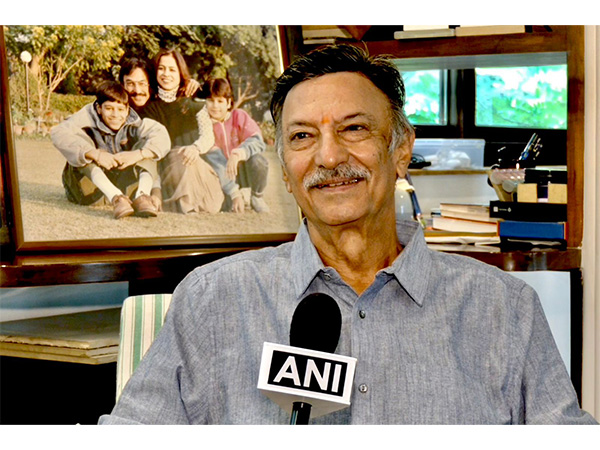England [UK], April 16 (ANI): A study by King’s College London found that spaces with a variety of natural features are associated with better mental health than spaces with less natural diversity.
Published in Scientific Reports and funded by the National Institute for Health and Care Research (NIHR) and Wellcome, this citizen science study used the smartphone application Urban Mind to collect real-time reports on mental well-being and natural diversity from nearly 2000 participants.
Researchers discovered that environments with more natural features, such as trees, birds, plants, and streams, are related to better mental health than environments with fewer elements, and that these advantages can continue for up to eight hours.
Further analysis found that nearly a quarter of the positive impact of nature on mental health could be explained by the diversity of features present. These findings highlight that policies and practices that support the richness of nature and species are beneficial both for the environment and for public mental health.
Lead author Ryan Hammoud, Research Assistant at the Institute of Psychiatry, Psychology & Neuroscience (IoPPN), King’s College London, said:
“To our knowledge, this is the first study examining the mental health impact of everyday encounters with different levels of natural diversity in real-life contexts. Our results highlight that by protecting and promoting natural diversity, we can maximise the benefits of nature for mental wellbeing. In practice, this means moving away from heavily curated monocultural pockets and parks of mown grass, which are typically associated with low biodiversity, towards spaces that mirror the biodiversity of natural ecosystems. By showing how natural diversity boosts our mental wellbeing, we provide a compelling basis for how to create greener and healthier urban spaces.”
The study took place between April 2018 and September 2023, with 1,998 participants completing over 41,000 assessments. Each participant was asked to complete three assessments per day over a period of 14 days, entering information about their environment and answering a series of questions about their mental health.
Natural diversity was defined by how many out of four natural features -trees, plants, birds and water – were present within the participant’s surrounding environment.
Data were collected using the Urban Mind app, developed by King’s College London, landscape architects J&L Gibbons and arts foundation Nomad Projects.
The Urban Mind project is funded by a Wellcome Climate Impacts Award to Professor Andrea Mechelli, the National Institute for Health and Care Research (NIHR) Maudsley Biomedical Research Centre and the NIHR Applied Research Collaboration South London.
Senior author Andrea Mechelli, Professor of Early Intervention in Mental Health at the IoPPN, said, “In the context of climate change, we are witnessing a rapid decline in biodiversity in the UK as well as globally. Our results suggest that biodiversity is critical not only for the health of our natural environments but also for the mental well-being of the people who live in these environments. It is time to recognise that biodiversity brings co-benefits for planetary and human health and needs to be considered vital infrastructure within our cities.” (ANI)
Disclaimer: This story is auto-generated from a syndicated feed of ANI; only the image & headline may have been reworked by News Services Division of World News Network Inc Ltd and Palghar News and Pune News and World News
HINDI, MARATHI, GUJARATI, TAMIL, TELUGU, BENGALI, KANNADA, ORIYA, PUNJABI, URDU, MALAYALAM
For more details and packages
















